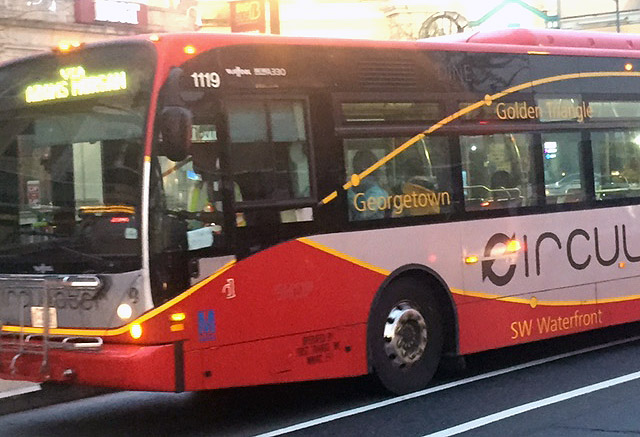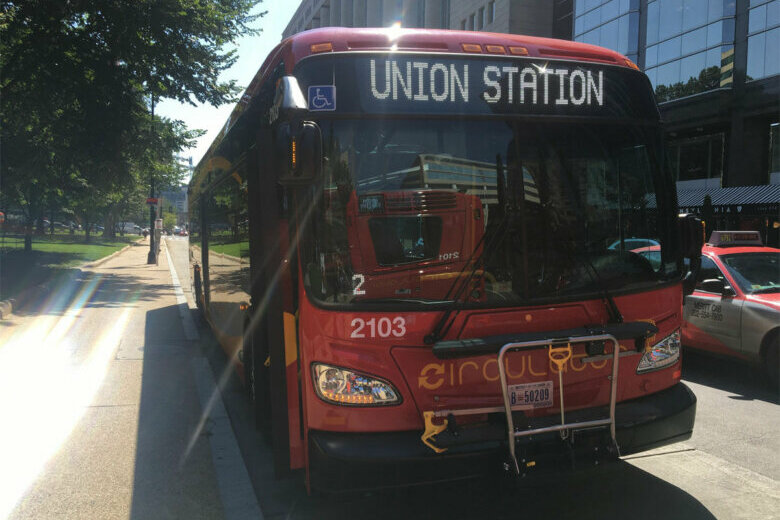
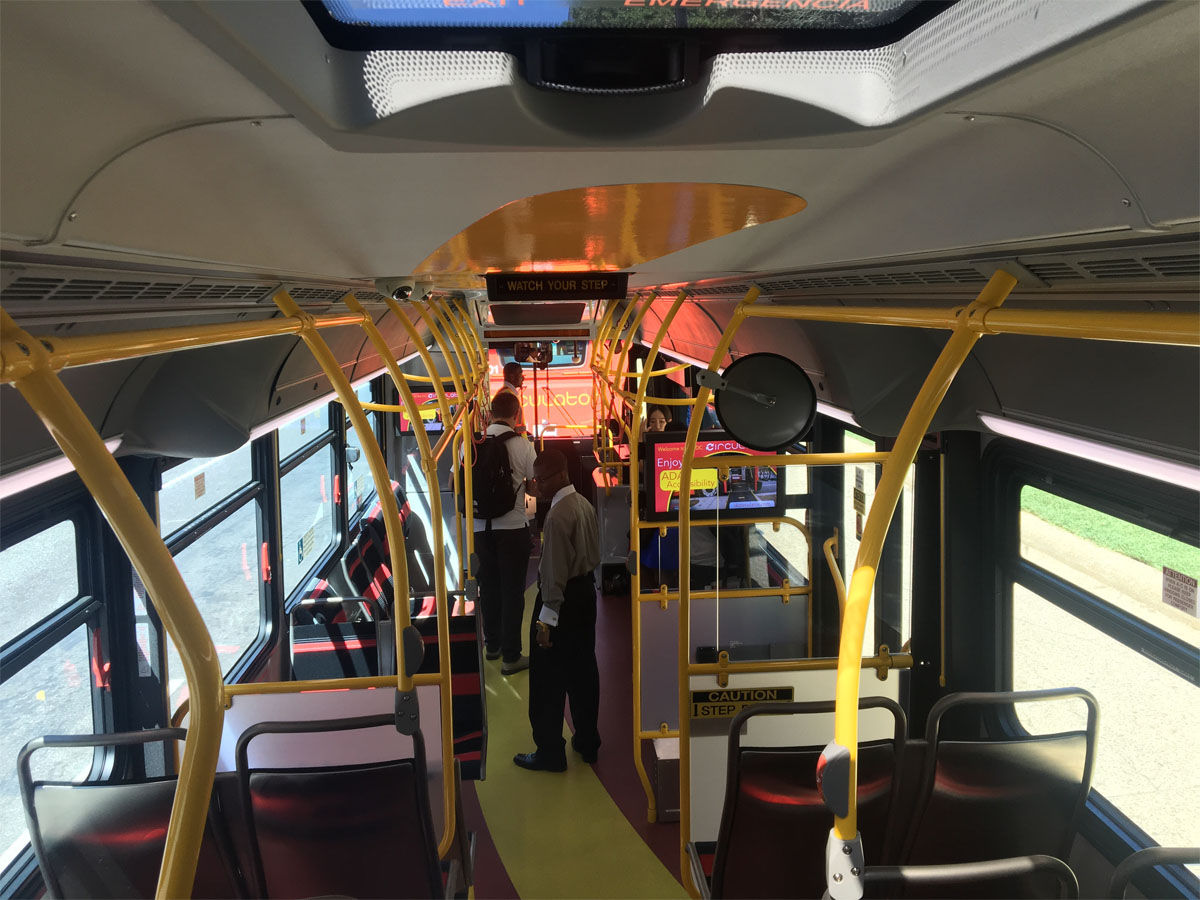
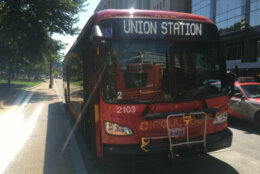
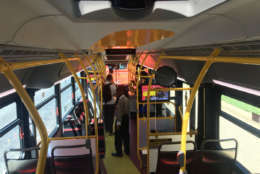
WASHINGTON — After years of problems with bus maintenance that have led to longer waits for riders, DC Circulator this week rolls out the first wave of new buses that District leaders said will lead to better service.
“This investment in new vehicles will help us to improve the system’s overall reliability. We’re using them to replace the oldest vehicles in our fleet,” D.C. Mayor Muriel Bowser said of the 40 new buses.
During a press event Tuesday morning, she stepped onto one of the 26 new diesel buses hitting the road starting this week to take in the new bus smell and check out the digital screens, USB ports for passengers and wider doors. Future upgrades could include Wi-Fi and allowing riders to board through the back door if the city implements a system to pay before boarding that could speed up trips and reduce waits at each stop.
Later this year, 14 electric buses will join the fleet. The electric buses can travel up to about 250 miles on a single charge and promise to be quieter than other buses.
The 12-year-old Circulator system, which carried 5.1 million riders last year across all six routes, is still short on maintenance bays to take care of its buses though.
“We are on the hunt for a new maintenance and storage facility,” outgoing District Department of Transportation Director Leif Dormsjo said. “This system has grown immensely over the last 12 years, and we need the facilities and the fleet to support the service that the public wants and demands.”
The city’s contract with the private operator of the system, First Transit, expires next year and the city is in the process of opening the next contract for bids.
D.C. hopes to establish its own maintenance facility to allow more companies to bid for the contract.
For now, Dormsjo said DDOT has First Transit bringing in maintenance experts from other parts of the area like the company’s employee’s at BWI-Marshall Airport.
“I do want to thank the customers of the DC Circulator system who have been patient through some of the last months where the equipment that we literally purchased in 2005, the legacy fleet, has been unreliable, and (it) has been difficult to achieve those high standards that we had expected,” Dormsjo said,
“With this new equipment, I think better days, brighter days, more reliable days are in front of us,” he said, as long as the city properly budgets for midlife maintenance that was not done in the past.
When asked whether the new buses would be properly taken care of despite the maintenance issues, Bowser simply responded, “yes”.


